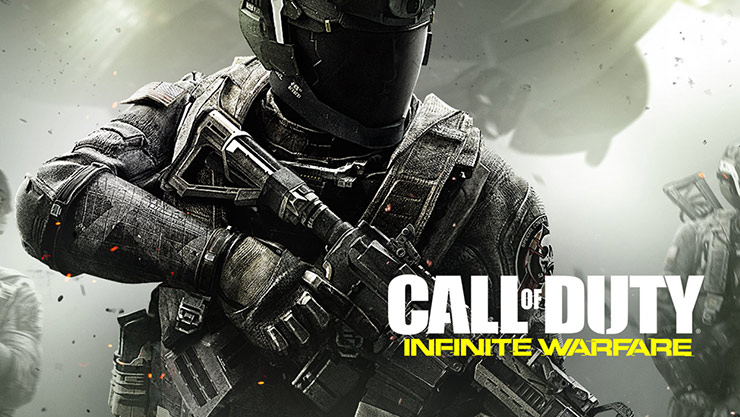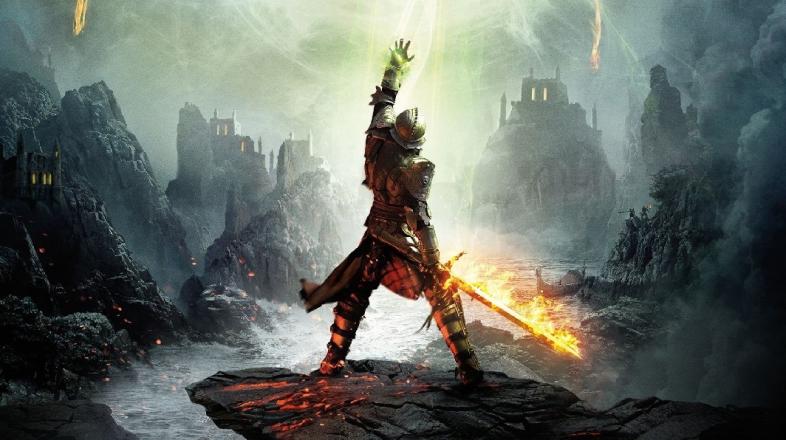A game is a structured form of play, usually undertaken for enjoyment and sometimes used as an educational tool. Games are distinct from work, which is usually carried out for remuneration, and from art, which is more often an expression of aesthetic or ideological elements. However, the distinction is not clear-cut, and many games are also considered to be work (such as professional players of spectator sports or games) or art (such as jigsaw puzzles or games involving an artistic layout such as Mahjong, solitaire, or some video games).
Games are sometimes played purely for entertainment, sometimes for achievement or reward as well. They can be played alone, in teams, or online; by amateurs or by professionals. The players may have an audience of non-players, such as when people are entertained by watching a chess championship. On the other hand, players in a game may constitute their own audience as they take their turn to play. Often, part of the entertainment for children playing a game is deciding who is part of their audience and who is a player.
Key components of games are goals, rules, challenge, and interaction. Games generally involve mental or physical stimulation, and often both. Many games help develop practical skills, serve as a form of exercise, or otherwise perform an educational, simulational, or psychological role.
Attested as early as 2600 BC,[2][3] games are a universal part of human experience and present in all cultures. The Royal Game of Ur, Senet, and Mancala are some of the oldest known games.
MOST IMPORTANT THING OF GAME IS SKILL
Skill, strategy, and chance
A game's tools and rules will result in its requiring skill, strategy, luck, or a combination thereof, and are classified accordingly.
Games of skill include games of physical skill, such as wrestling, tug of war, hopscotch, target shooting, and stake, and games of mental skill such as checkers and chess. Games of strategy include checkers, chess, Go, arimaa, and tic-tac-toe, and often require special equipment to play them. Games of chance include gambling games (blackjack, Mahjong, roulette, etc.), as well as snakes and ladders and rock, paper, scissors; most require equipment such as cards or dice. However, most games contain two or all three of these elements. For example, American football and baseball involve both physical skill and strategy while tiddlywinks, poker, and Monopoly combine strategy and chance. Many card and board games combine all three; most trick-taking games involve mental skill, strategy, and an element of chance, as do many strategic board games such as Risk, Settlers of Catan, and Carcassonne.

Online games
Online games have been part of culture from the very earliest days of networked and time-shared computers. Early commercial systems such as Plato were at least as widely famous for their games as for their strictly educational value. In 1958, Tennis for Two dominated Visitor's Day and drew attention to the oscilloscope at the Brookhaven National Laboratory; during the 1980s, Xerox PARC was known mainly for Maze War, which was offered as a hands-on demo to visitors.
Modern online games are played using an Internet connection; some have dedicated client programs, while others require only a web browser. Some simpler browser games appeal to demographic groups (notably women and the middle-aged) that otherwise play very few video games.[citation needed]
MOST POPULAR GAME IN TODAY'S DATE
FULL DETAILS ABOUT PUBG
References
- ^ "Definition of GAME". www.merriam-webster.com. Retrieved May 7, 2017.
- ^ Soubeyrand, Catherine (2000). "The Royal Game of Ur". The Game Cabinet. Retrieved 2008-10-05.
- ^ Green, William (2008-06-19). "Big Game Hunter". 2008 Summer Journey. Time. Retrieved 2008-10-05.
- ^ "History of Games". MacGregor Historic Games. 2006. Retrieved 2008-10-05.
- ^ Wittgenstein, Ludwig (1953). Philosophical Investigations. Oxford: Blackwell. ISBN 978-0631231271.
- ^ "Was Wittgenstein Wrong About Games?". Nigel Warburton]. 2007. Retrieved 2013-06-28.
- ^ Caillois, Roger (1957). Les jeux et les hommes. Gallimard.
- ^ a b c Crawford, Chris (2003). Chris Crawford on Game Design. New Riders. ISBN 978-0881341171.
- ^ Salen, Katie; Zimmerman, Eric (2003). Rules of Play: Game Design Fundamentals. MIT Press. p. 80. ISBN 978-0262240451.
- ^ Costikyan, Greg (1994). "I Have No Words & I Must Design". Archived from the original on 2008-08-12. Retrieved 2008-08-17.
- ^ Clark C. Abt (1987). Serious Games. University Press of America. ISBN 978-0819161482.
- ^ Avedon, Elliot; Sutton-Smith, Brian (1971). The Study of Games. J. Wiley. p. 405. ISBN 978-0471038399.
- ^ Maroney, Kevin (2001). "My Entire Waking Life". The Games Journal. Retrieved 2008-08-17.
- ^ Suits, Bernard (1967). "What Is a Game?". Philosophy of Science. 34 (2): 148–156. JSTOR 186102.
- ^ McGonigal, Jane (2011). Reality is Broken. Penguin Books. ISBN 978-0143120612.
- ^ Schwyzer, Hubert (October 1969). "Rules and Practices". The Philosophical Review. 78(4): 451–467. doi:10.2307/2184198. ISSN 0031-8108. JSTOR 2184198.
- ^ a b Marsili, Neri (2018-06-12). "Truth and assertion: rules versus aims". Analysis. 78 (4): 638–648. doi:10.1093/analys/any008. ISSN 0003-2638.
- ^ Kemp, Gary (2007). "Assertion as a practice". Truth and Speech Acts: Studies in the Philosophy of Language.
- ^ Oxford English Dictionary. Oxford University Press. 2008.
Designed for or involving more than two (esp. many) players or participants
- ^ K.G. Binmore (1994). Game Theory and the Social Contract. MIT Press. ISBN 978-0262024440.
- ^ a b Laszlo Mero; Anna C. Gosi-Greguss; David Kramer (1998). Moral calculations: game theory, logic, and human frailty. New York: Copernicus. ISBN 978-0387984193.
- ^ Simon C. Benjamin & Patrick M. Hayden (13 August 2001). "Multiplayer quantum games". Physical Review A. 64 (3): 030301. arXiv:quant-ph/0007038. Bibcode:2001PhRvA..64c0301B. doi:10.1103/PhysRevA.64.030301.
- ^ Costikyan, Greg (1994). "I Have No Words & I Must Design". Archived from the original on 2008-08-12. Retrieved 2008-08-17.
- ^ Woodcock, Bruce Sterling (2008). "An Analysis of MMOG Subscription Growth". Retrieved 2008-11-16.
- ^ "Roleplay Simulation for Teaching and Learning". Archived from the original on 2008-02-05.
- ^ "Roleplay Simulation Gamer Site". Playburg.com. Retrieved 2009-07-29.





No comments:
Post a Comment